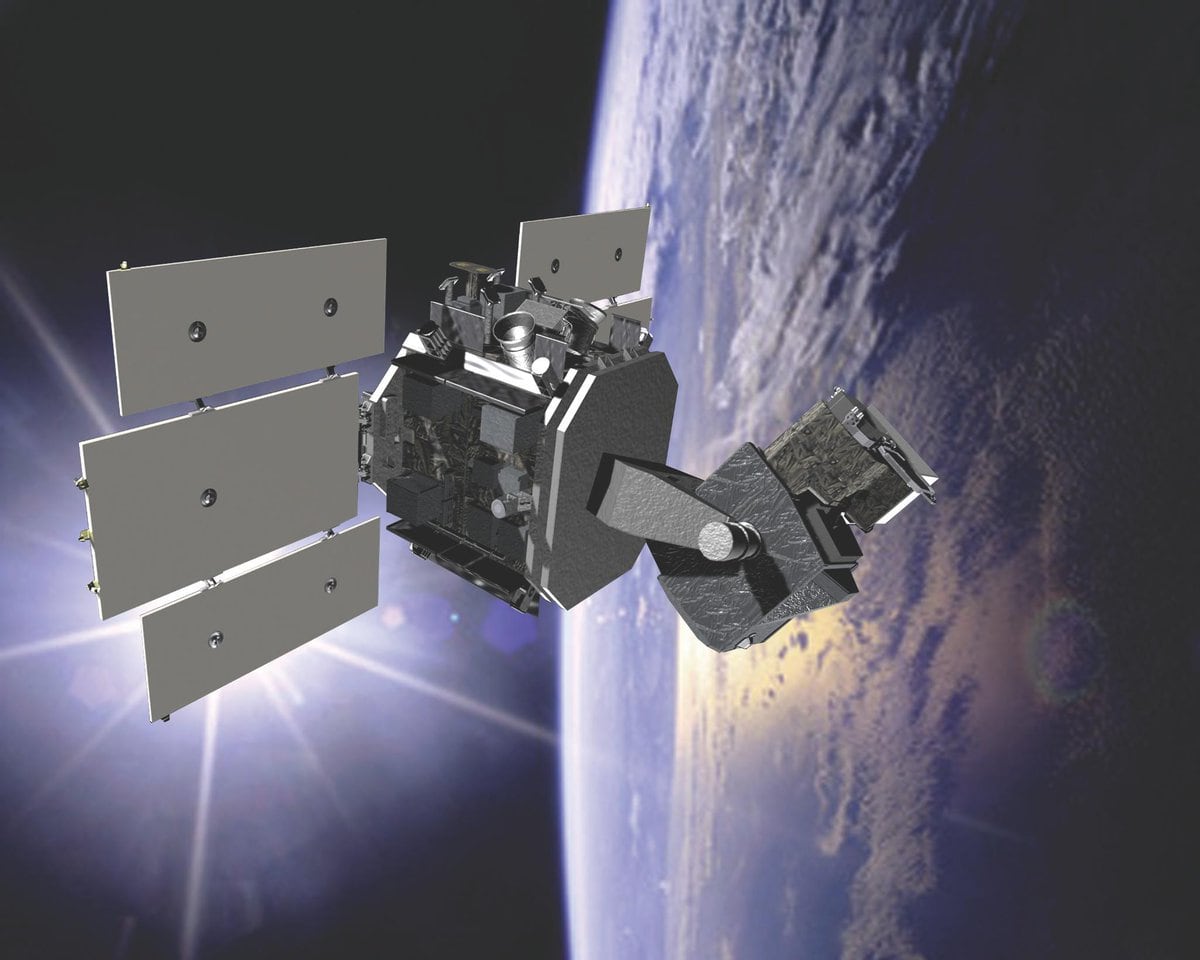LONDON — In an effort to avoid collisions in the increasingly congested space environment, Britain is considering a policy that would require satellites to carry a space domain awareness sensor, according to a U.K. Space Command official.
“Any spacecraft that goes up that doesn’t have some sort of space domain awareness capability is wasted payload space,” Commodore David Moody, head of space capability within U.K. Space Command, said Sept. 13 at the DSEI Conference here.
The Ministry of Defence is leading development of a cross-government Space Sector Plan, set to be completed late this year or early next, that outlines its strategy to spur economic growth and resilience across the country’s space enterprise. Moody told C4ISRNET on the sidelines of the conference the plan will likely push for stronger policy around space domain awareness requirements for satellite operators.
“I want operators to have the ability to ensure, one, their investment and two, their ability to operate that spacecraft and fly that spacecraft in the manner to which it was designed — and to do so for as long as is predicted without fear of not being able to take the appropriate response if a meteorite happens to be whistling by,” Moody said. “That’s a loss for everybody.”
The number of objects in space has grown significantly in recent years, increasing the potential for mishaps or collisions in orbit. The U.S. Department of Defense tracks approximately 47,900 objects today — 16% more than it observed from 2021 to 2022, according to an unclassified Space Policy Review released Sept. 14.
The increase in commercial activity in space, as well as debris from inactive or destroyed satellites, has led spacefaring governments to invest more in sensors that can observe and track that activity.
For U.K. Space Command, Moody said, awareness in the space domain is fundamental to its operations in orbit and its mission to “protect and defend.”
“If I don’t have space domain awareness, or at least the ability to have some sort of proximity sensors, then I’m not achieving that protect and defend policy,” he said. “I wouldn’t be fulfilling one of the reasons that Space Command was established in the first place.”
Allied nations have also been working to increase their collaboration in this area, forming the Combined Space Operations Center in 2018 as a way to more easily share information about what they’re seeing in orbit. The center, located at Vandenberg Space Force Base in California, brings together partners from the U.S., U.K., Australia, Canada, France, Germany and New Zealand.
Moody said U.K. Space Command has discussed the possible space domain awareness requirements with its international partners.
“We talk about the capabilities and architecture work we do, the operations work we do, and also the legal working groups all the time so that we have an absolutely common understanding of what it is that we’re all trying to achieve,” he said.
Courtney Albon is C4ISRNET’s space and emerging technology reporter. She has covered the U.S. military since 2012, with a focus on the Air Force and Space Force. She has reported on some of the Defense Department’s most significant acquisition, budget and policy challenges.








